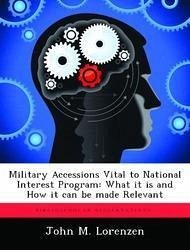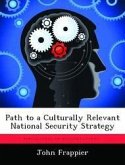Non-citizens have served in the United States military during every war since at least the Civil War. In 1862 Congress, in an effort to increase the size of the Army, passed the first legislation which authorized expedited citizenship for immigrants who agreed to serve in the Army; a practice which continues to the present day. This monograph looks at the history of non-citizens serving our country during times of war. Specifically, it examines the Military Accessions Vital to National Interest (MAVNI) Program which is a Department of Defense recruiting program that targets non-citizens who speak languages deemed to be of "high-value" to the military and certain health care professionals. Individuals who agree to serve are granted expedited citizenship. This monograph argues that the Army should expand the MAVNI program in order to make it more viable. The military's success in current and likely future operations demands adaptable and flexible Soldiers. These Soldiers also need to enhance the commander's understanding of the environment in order for him to visualize, describe and direct. Soldiers recruited through the MAVNI program possess language skills and cultural expertise that can help the commander make sense of what is going on around him enabling his practice of mission command. This monograph provides a framework for expanding the MAVNI program. Based on the above, two proposals are made; (1) further development of the MAVNI program in order to better leverage the language skills and cultural expertise of the Soldiers recruited through the program, and (2) the integration of MAVNI Soldiers into operations with more precision.
Hinweis: Dieser Artikel kann nur an eine deutsche Lieferadresse ausgeliefert werden.
Hinweis: Dieser Artikel kann nur an eine deutsche Lieferadresse ausgeliefert werden.








